Pirate Radio Hauraki Rules the Waves
|
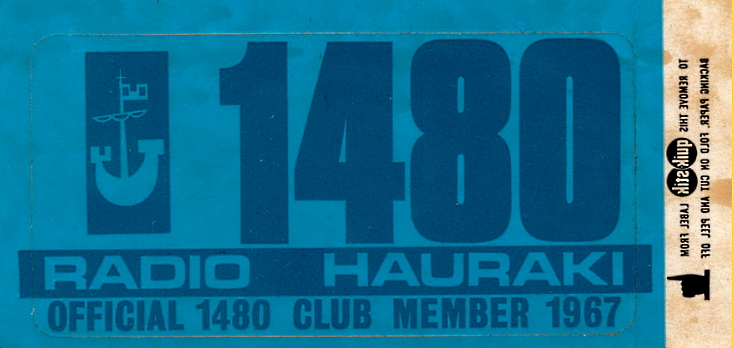
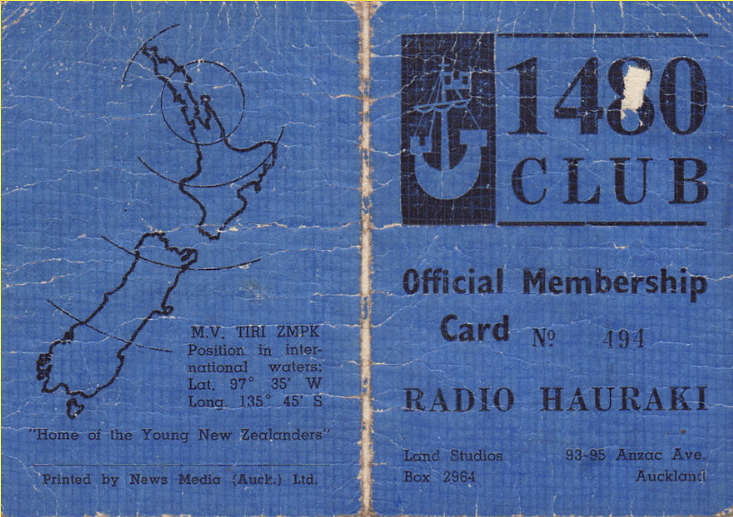
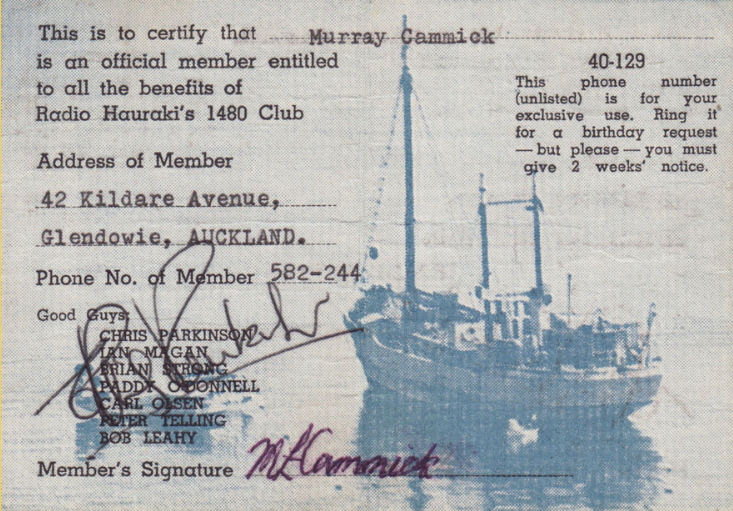
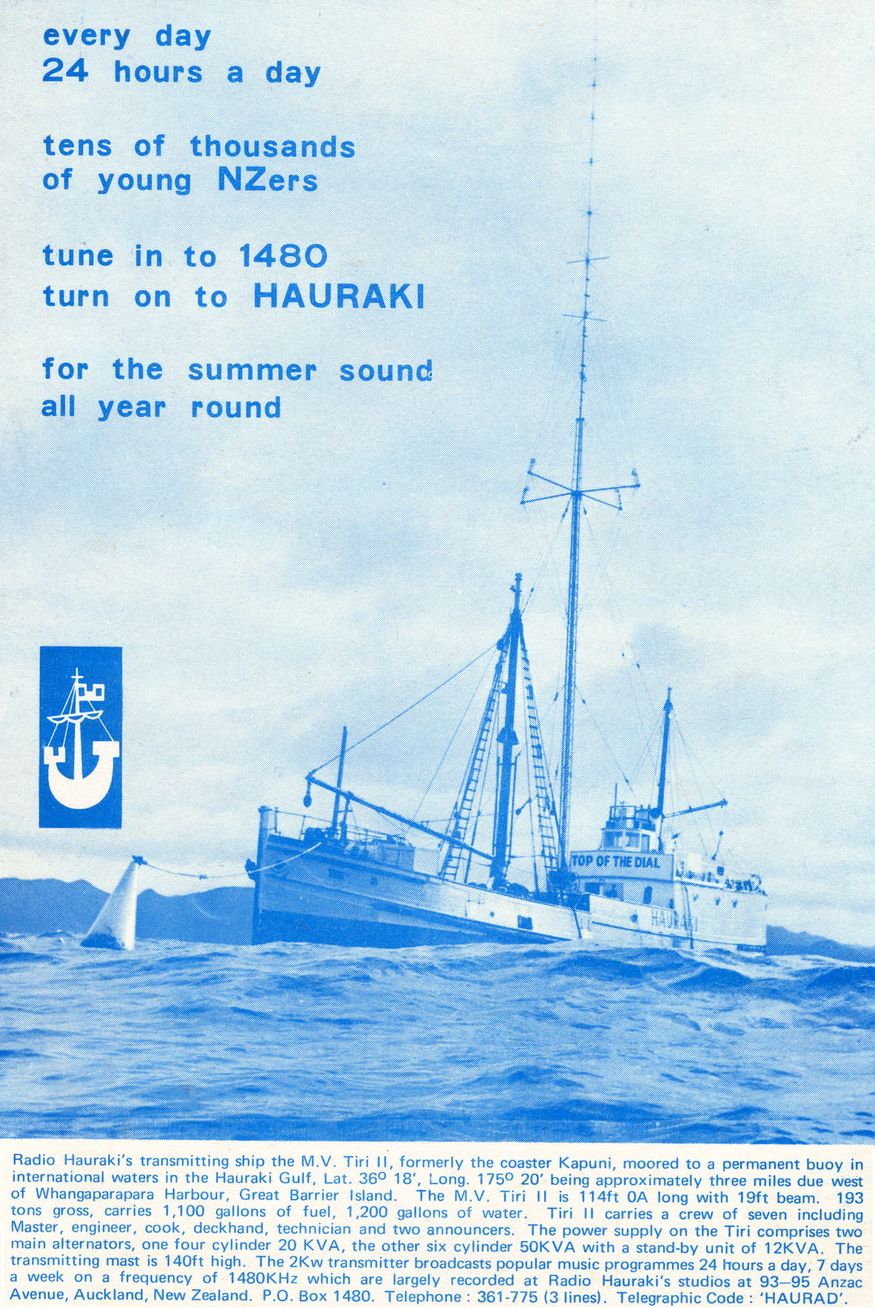
Pirate Radio Hauraki Rules the Waves
|
|||
   |
 |
||
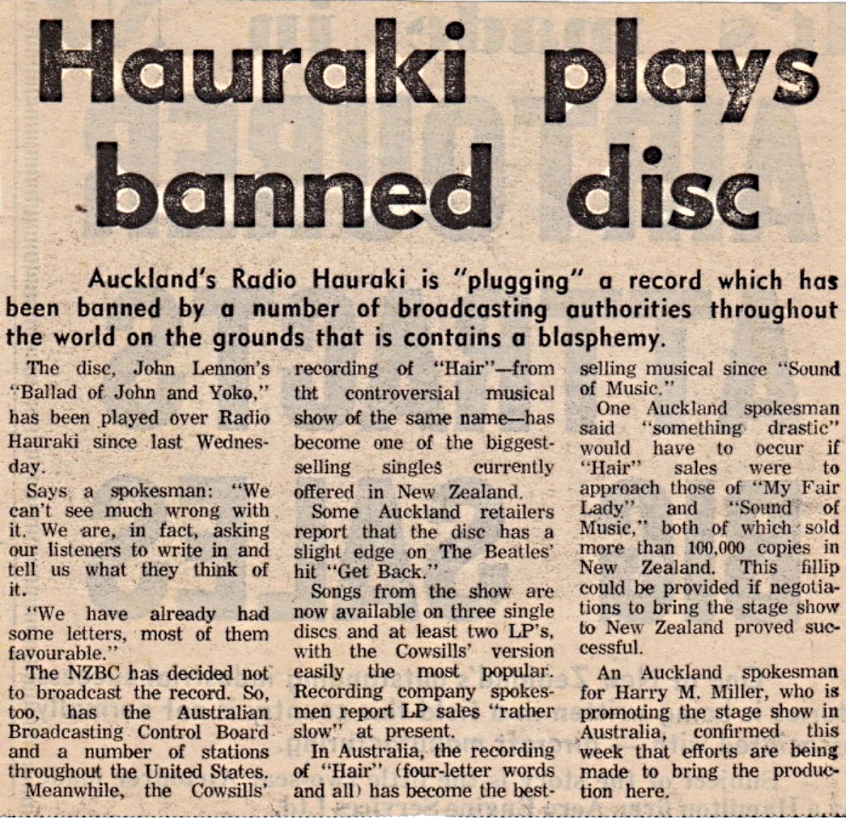 |
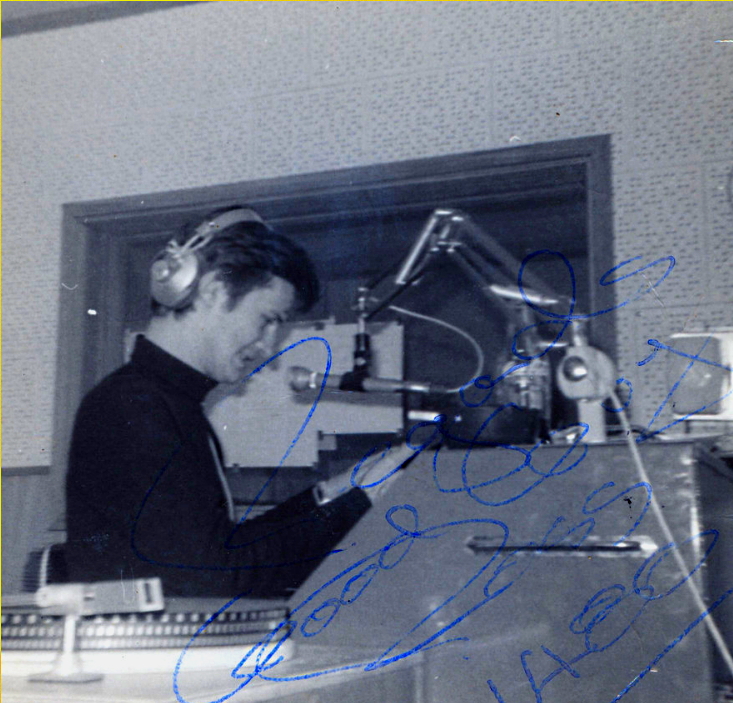 Photo of Ross Goodwin taken by Murray Cammick |
FIRST-HAND KNOWLEDGE OF RADIO HAURAKI AND THEIR INFLUENCE ON THE BALLAD OF JOHN AND YOKO "Radio Hauraki loved to play songs that were banned by the state broadcaster," writes Murray Cammick. "Radio Hauraki did not bleep “Christ” from the Beatles’ hit ‘Ballad of John & Yoko’, they thrashed the Rolling Stones’ risqué ‘Let’s Spend The Night Together’ and they even played banned novelty crap like ‘They're Coming to Take Me Away’ by Napoleon XIV." "I was sold [on Radio Hauraki] when young host Ross Goodwin played Otis Redding from his Live in Europe album, late at night." Murray Cammick went on to say that: "I was allowed to take a photo of Ross in the studio with my Kodak Instamatic and returned a week later to ask him to autograph it." "I recall a 1967 school holiday (or two) spent listening to Radio Hauraki emanating from the radiogram." Murray Cammick writes: "It was a great year for music – the Beatles released Sgt. Pepper's Lonely Hearts Club Band and Radio Hauraki did not need to worry about the meaning of ‘Lucy In The Sky With Diamonds’ or what The Small Faces were doing in ‘Itchycoo Park’. Larry's Rebels were on the air with local composition 'Let's Think Of Something' written by Roger Skinner. Over time some songs of 1967 faded – I have not heard ‘Come On Down To My Boat Baby’ by Every Mother's Son or ‘Little Bit O’ Soul’ by The Music Explosion, but The Doors’ ‘Light My Fire’ I have heard too often."
|
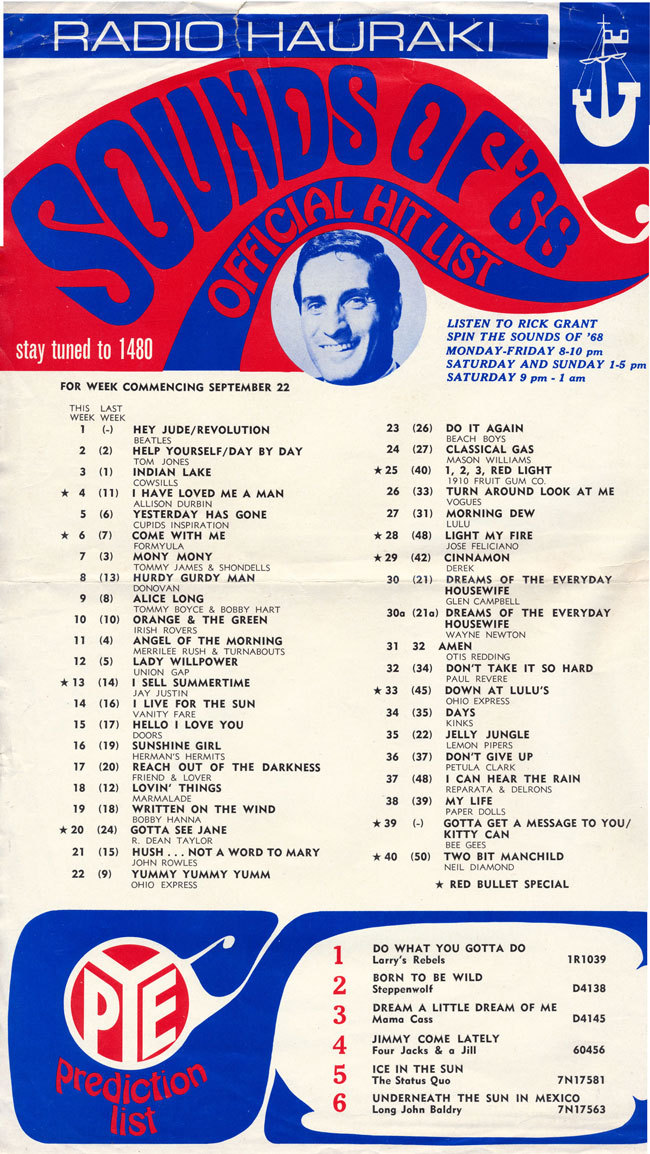 |
|
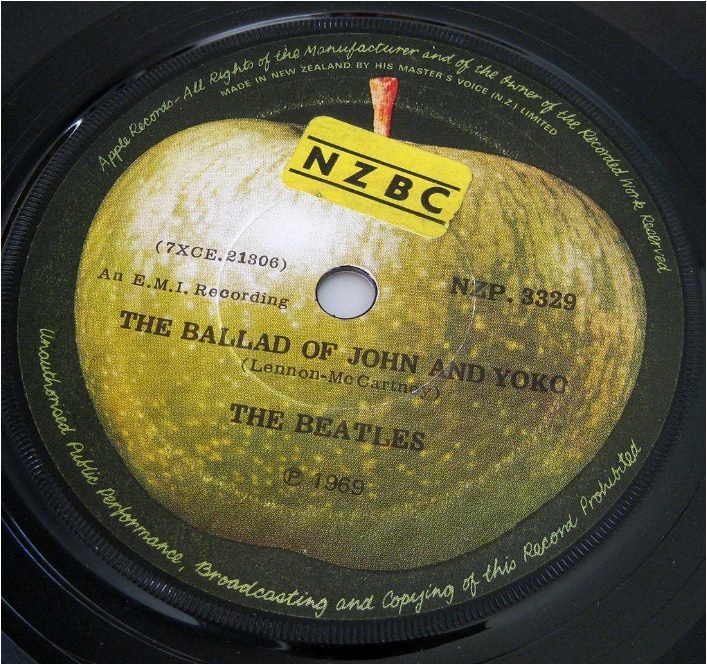 There are allegedly anywhere from a couple of dozen to 100 copies of the vinyl edited version that were sent to various DJ's in New Zealand to be used for airplay. |
BY SEPTEMBER 29, 1973,
NZBC RADIO FINALLY LIFTS THE BAN ON THE BALLAD OF JOHN AND YOKO
|
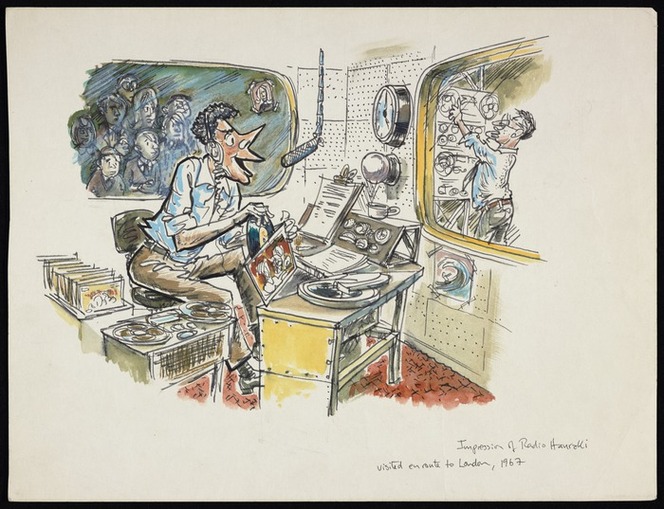 A radio DJ and engineer broadcast aboard ship from the pirate radio station Radio Hauraki. Spectators look through the window into the control booth. |
Back to the Beatles Timeline by the Ottawa Beatles Site